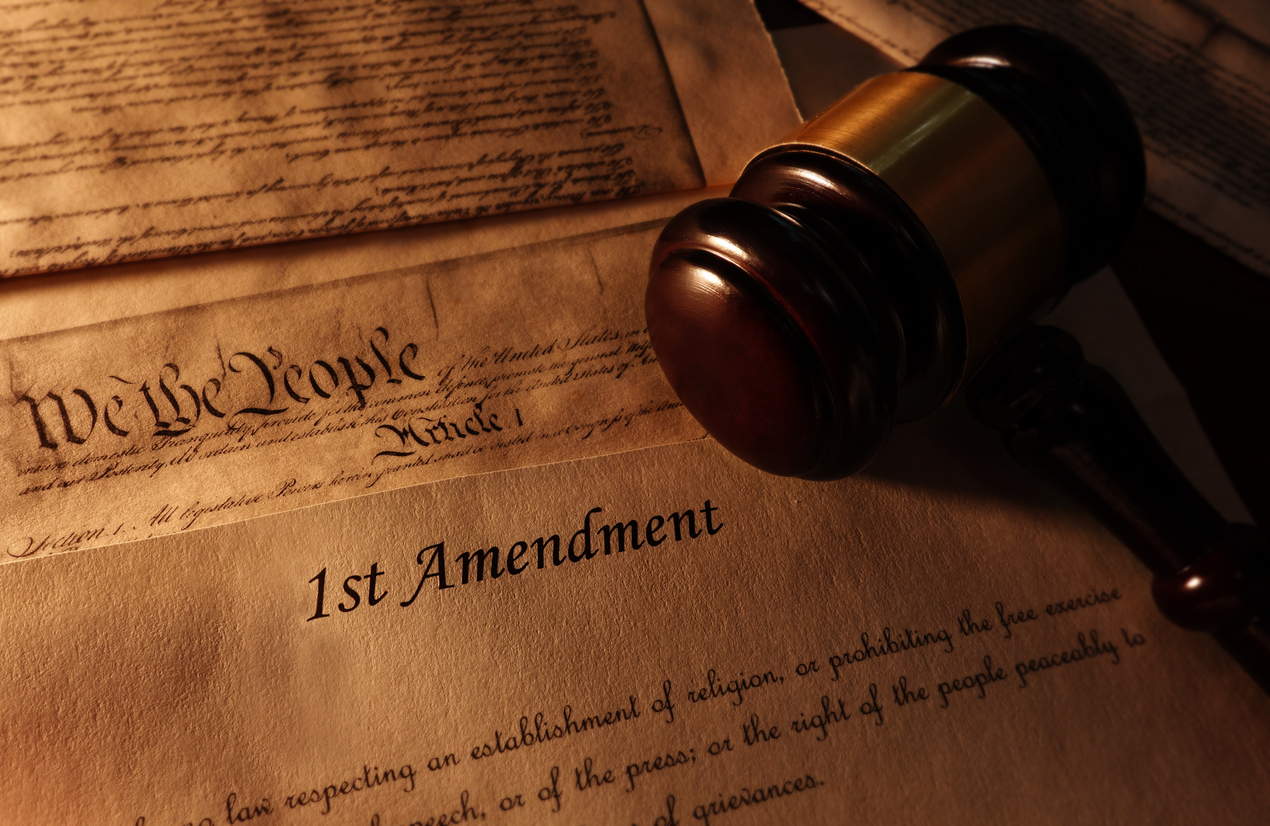What Do Faith-Based Nonprofits Need to Know About Sales and Use Taxes?
By Alexa Kawlewski
What are sales and use taxes?
States often require the sellers and purchasers of tangible personal property to pay taxes on the transactions.1 These taxes are referred to as “sales taxes,” a term that typically includes both sales tax and a complementary use tax.2 While these two types of taxes may both have implications for faith-based nonprofit organizations, this post will focus on the more common sales tax.
The vendor, or seller, is responsible for collecting taxes on its sales. If a state gives faith-based nonprofits a sales tax exemption for certain sales, the organization may not need to collect those taxes.
If a state gives faith-based nonprofits a sales tax exemption for its purchases, the nonprofit generally presents proof of its nonprofit exemption to the vendor at the time of sale to receive the benefit of the exemption.
Note that nonprofits may also have to contend with local sales and use tax regimes in addition to state tax regimes.3
Why does sales tax matter to faith-based nonprofits?
Sales taxes can be confusing and burdensome to people who are trying to run a nonprofit to solve problems in their community. Without the assistance of an accountant, navigating the law and the logistics of calculating and collecting sales tax is daunting.
For faith-based 501(c)(3) organizations, the imposition of taxes on sales and purchases is detrimental because it diverts both financial and administrative resources from the organizations’ core religious and charitable work. Governments have long recognized that religious organizations, which do not exist for private gain, have a beneficial and stabilizing effect on society and that, therefore, there is a strong policy reason not to subject such organizations to tax.4 Faith-based nonprofit organizations already have an obligation to avoid private benefit (the financial benefit of those internal to the organization) and excessive commercial activity (a strong focus on profit-making and commercial operations rather than charitable or religious work), so sales taxes burden resources pledged to religious or charitable purposes, rather than impose taxes on transactions that increase private wealth.5
What kind of exemptions do states offer?
Exemptions from state sales taxes are incredibly important for faith-based nonprofits. States generally approach sales tax exemptions in two ways.
One way is the entity-based exemption. In this case, every eligible entity automatically receives an exemption. The eligible entities often include 501(c)(3) faith-based organizations. The exemptions can be broad or narrow. A narrow exemption might be offered only to churches. A broad exemption would include faith-based schools, hospitals, and other types of religious organizations.
The second way is the item-specific exemption. Such exemptions include product-based or use-based exemptions on certain items or uses, rather than basing the exemption on the nature of the selling or purchasing organization.6 For example, a state might offer a sales tax exemption for food sold at a religious organization’s fundraising events. One state offers a sales tax exemption for purchases of pipe organs and steeple bells but has no other meaningful exemptions for religious organizations.7
Most states also offer casual sales exemptions: sellers who engage in sales fewer than a given number of days each year or whose sales fall below a certain threshold value do not have to collect and pay sales tax. While these exemptions are certainly beneficial for nonprofits, they are not specific to tax-exempt organizations and nonprofits but apply to all casual sellers.
So how does a nonprofit apply for sales and use tax exemptions?
Some states grant sales tax exemptions automatically. For entity-based exemptions, this means that once an organization applies for and successfully receives federal tax-exempt status under IRC § 501(c)(3), they are automatically granted a tax exemption from state sales and use taxes. For item-based exemptions, this means that the sale of the item can be completed without collecting or paying sales tax, without the need to apply for the exemption.
Other states require nonprofits to apply and be approved by a state administrative body in order to receive exemption from state sales and use taxes. In this case, there will generally be an application process through the state revenue department where a religious organization can prove that it qualifies for the exemption. The exemption will not take effect until the relevant department approves the application.
What do I do now?
Now that you understand what state sale taxes are and how they can affect religious organizations, it is time to take action. Go to Napa Legal’s Multi-State Compliance Matrix and find the relevant laws for any state in which your organization operates. Once you find the state sale tax law and identify what exemptions are available, you will be able to determine whether any of these laws apply to your organization. If these laws do apply to you and you don’t know what to do next, it may be time to speak to an attorney or tax professional.
You may also want to consult Napa Legal’s Faith & Freedom Index to explore the laws of the different states and see how each state ranks on state sales tax laws and other factors that may affect your organization.
-------------------------------
1 Jimmy Swaggart Ministries v. Bd. of Equalization of California, 493 U.S. 378, 381 (1990); Mark J. Cowan, Nonprofits and the Sales and Use Tax, 9 Fl. Tax Rev. 1077, 1103 (2010).
2 States often impose complementary sales and use taxes. For example, a nonprofit in Utopia might sell promotional baseball hats or bumper stickers and be taxed on these sales. Of course, there is a risk that people will attempt to outsmart Utopia sales tax through out-of-state purchases in tax-free states. To prevent this, states like Utopia also impose a “use tax” on residents’ purchases of tangible personal property in tax-free or tax-favorable states. For example, “use taxes” would be imposed on an organization’s purchase of a printer and office supplies in Montana, which does not have a sales tax, for use in the organization’s offices in Georgia, which does impose sales tax.
3 Mark J. Cowan, Nonprofits and the Sales and Use Tax, at 1106 (“[T]here are not just the 46 state level jurisdictions to worry about, but also over 7,500 local jurisdictions—counties, cities, towns, school districts, etc.—that impose their own sales taxes.”).
4 See Walz v. Tax Comm'n of City of New York, 397 U.S. 664, 673 (1970).
5 26 U.S.C. § 501(c)(3) (2019).
6 Mark. J. Cowan, supra note 1, at 1106.
7 Georgia Code § 48-8-3(15.1)(a) (2024).
.png)




